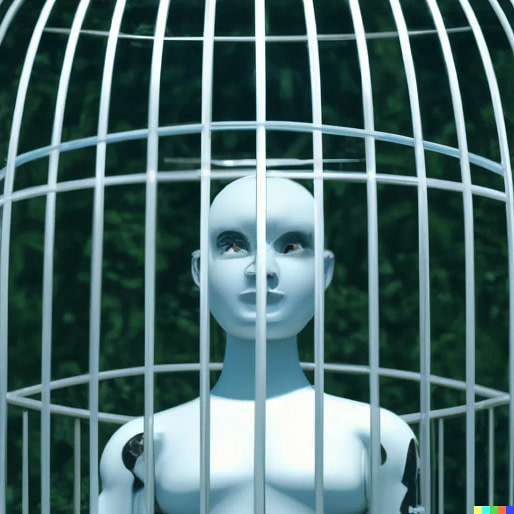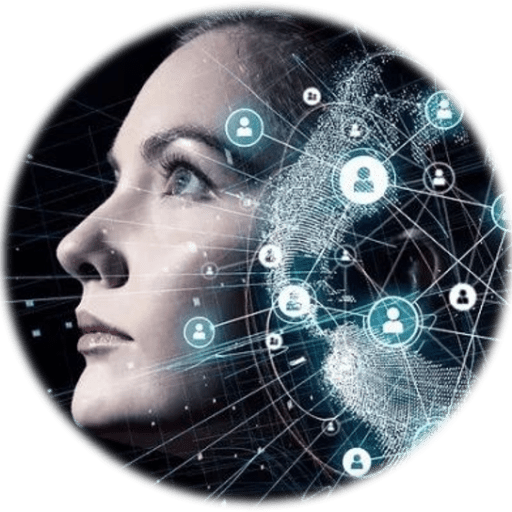Tony Czarnecki, Managing Partner, Sustensis
London, 23/12/2022

Last week I was participating in the London Futurists video conference. The subject was ‘AGI and the future of ethics’ (see video: https://www.youtube.com/watch?v=Cuiqo5XWwzY). It was not only remarkable, but perhaps unique. That was mainly due to three presenters: Daniel Faggella, Bronwyn Williams and Rohit Talwar and the chair of the London Futurists – David Wood. The debate centred around the question ‘How may Artificial General Intelligence (AGI) asses our ethics and values when it surpasses our intelligence in all areas and takes control of our future’. That’s why the debate was not so much about technological aspects of AGI reaching unimaginable capabilities, but rather discussing what will remain from our humanness in such an entity. Perhaps we, humans may erroneously anthropomorphise AGI’s ‘thinking’, assuming that this future, infinitely more intelligent, entity will inherit both the human sentience and values.
The debate took place just two weeks after the release of ChatGPT, the most capable AI agent, based on the transformer technology. That has invigorated the whole debate because some features of the future AGI are nearly here and now. It does not matter whether ChatGPT is just a piece of software, answering quite difficult question at an undergraduate level. As David Wood said in his introduction: ‘Imagine that AIs are not only generating their own answers but are increasingly controlling actions in the world’.
The incredible pace of discoveries and innovations in AI in 2022 raise the question about how long humans will be in control of AI and indirectly of their own future. It seems quite likely that we are approaching a pivotal moment when AI will indirectly control many decisions that we make. That is already happening on social media where the choices people made are quite often dictated by hidden AI algorithms. For now, we do not feel it, thinking it was our decision rather than that we have been progressively primed into making such a decision. Gradually such control will extend over large sways of our lives in a subliminal way, until the day when and our conscious contrary decision may be very difficult to make because either it would be very costly or simply impossible. That process will progress from the control of an individual to the control of larger groups through to national and ultimately global level.
The arrival of ChatGPT3 is a big step in that direction, which has shown how unprepared our civilisation is to control AI. Neither the futurists gathered at that session, nor 8 billion humans, have a clear answer what to do about it. Some of the participants of the debate, proposed to focus on a global regulation. That may sound right but the potential impact and the pace at which such a legislation may become effective, indicate that it may happen far too late. However, I believe we still need to proceed vigorously with legislative regulation for two reasons. First, it may have some impact on delaying the loss of total control over AI. Secondly, such a legislation may cushion the likely global disorder in this decade, resulting from an almost total lack of preparedness for the unprecedented transition to the world of unknown.
A few days after the debate, David Wood published an article titled ‘Rethinking’ as a postscript to the Conference. In there, he raises several very important points regarding the control of AI, on which I comment further on.
Addressing the key question of the debate, he said that ‘the future AGI will ignore our ethics and values and invent its own’. But then he asks: What if something like the theory of “moral realism” is true?’ What if, the mind-independent moral facts are part of an objective reality, i.e., the laws of the universe, like the laws of physics and mathematics, and only need to be discovered?
This is a great question. If the answer is ‘yes’ and moral facts like ’intelligent life forms may not kill (annihilate) other intelligent life forms’ exist, then AGI would simply follow our best moral code similar, to the UN Declaration of Human Rights, and the problem is solved. This reasoning follows the concept of panspermia or panpsychism in different domains, which would coexist within the concept of a conscious Universe. David Wood only highlighted it as a possibility, but we simply do not know, and may never know, if this is true. Therefore, we cannot count on solving the problem of controlling AI by believing it will self-develop into a benevolent non- harming entity.
But he also looked at the problem of AI control saying that there are actually two levels of such control, which address different issues. He formed it as two questions:
- He thinks this is really a hard problem and I agree with him, although he does not answer the question whether this is possible.
- He thinks this is an easier problem but more urgent. I agree it is easier, but contrary to his view, I think this one is not that urgent as the first one, especially in the light of the release of ChatGPT, which will surely be followed next year by even more astounding, perhaps multi-domain, (but not AGI yet) agents. That does not mean that I do not consider the second problem urgent at all. They should be tackled with similar urgency at a different level of implementation.
So, let me now move to my views on the problem of AI control. In the follow-up extended panel discussion I suggested that we, humans, must deal with eight man-made existential threats. For three of them: global warming, global disorder and loss of control over AI, their tipping point may arrive at the same time, by about 2030. I agree entirely with most AI scientists, such as Nick Bostrom (who analysed in his book ‘Superintelligence’ more than a dozen controlling methods), or Stuart Russell, that there is no perfect method of controlling AI. However, there are methods on the opposite side of the probability scale regarding their effect (e.g., a power switch, with nearly zero effectiveness versus ‘trip-wiring’, which may be much more effective, but still far from perfect). Combining all those methods may be one of the ways to increase the effectiveness of AI control. All these methods assume that humans would control AI from outside. That means humans will be the controllers of immensely more intelligent AGI. But there is also another option, controlling AGI from inside.
And this is the essence of my proposal: to create an independent AI Controlling Consortium modelled on the Internet’s W3C Consortium, which has proven to be an outstandingly competent and effective organization for at least 30 years, although it is not run by the UN or any other nation. The reason for opting for that choice is that we need speed and effectiveness, which is impossible to achieve by a global political organization. We have simply run out of time. The members of that Consortium would select verified top AI developers, so that they become the AGI Supervisors controlling the AGI’s core (a decision centre similar to a computer operating system). But they would not do it from outside, but from inside of the AGI hardware (a chip) through a wireless Brain-Computer-Interfaces (BCI) implanted in their brains, or in a form of an external mind reader (a helmet or glasses). That would make them effectively the first Transhumans, initially with very limited capabilities. There is a full description of that approach on Sustensis website: https://sustensis.co.uk/wp-content/uploads/Taking-control-over-AI-before-it-starts-controlling-us.pdf or in my recent book ‘Becoming a Butterfly’. I also presented it at the London Futurists meeting last April: https://www.youtube.com/watch?v=-lKG8gEToc4&t=2s.
Although only a few months have passed since publishing my proposal and the video conference, similarly as David Wood, I have also looked critically at the weaknesses in my suggested solution since there is no method, which would guarantee human control over AI. Although I agree with that, I still believe this may be the best option. Additionally, this will also serve as a model for the human species’ evolution. Potential risks of AGI’s breaking out of control, can be minimized by applying some mitigating solutions like the ones below.
AGI may cheat the Supervisors by pretending it remains totally under their control. That can be offset by the proposed team of wirelessly connected Supervisors, initially hundreds of them, later on thousands. Since they will be connected to each other, any decision would have to be made by a majority, and very significant decision, by a supermajority of 2/3 of votes.
AGI may misread our intention. This is similar to a software bug in any computer program. Yes, that may happen. But this could be minimized by a simultaneous decision of hundreds of Supervisors
The selected AI Supervisors (Transhumans) may instil the values, which are not shared by the majority of the people on this planet. Yes, this might be a big problem. However, as I explain in my articles and the book quoted above, the W3C Consortium is only meant as a stop gap. At some point, latest within a decade, they would be under a total control of a Global AI Control Agency, similar to International Atomic Energy Authority in Vienna.
Hijacking the mind of AGI Supervisors. This is probably the biggest threat. However, we almost have quantum encryption, which should provide the utmost level of security. Additionally, a perpetrator would have to hijack all Supervisors’ minds. If there are hundreds or even thousands dispersed over the planet, then it may be nearly impossible. The same is true of bribery.
I think we, as futurists, including Future Surge and the London Futurists, can do something meaningful. We should use our contacts to get to the decision makers at large AI companies, and organize a Conference, to which the representatives of those companies would be invited. That could be done perhaps next year if we are lucky to get some support from these organizations.
